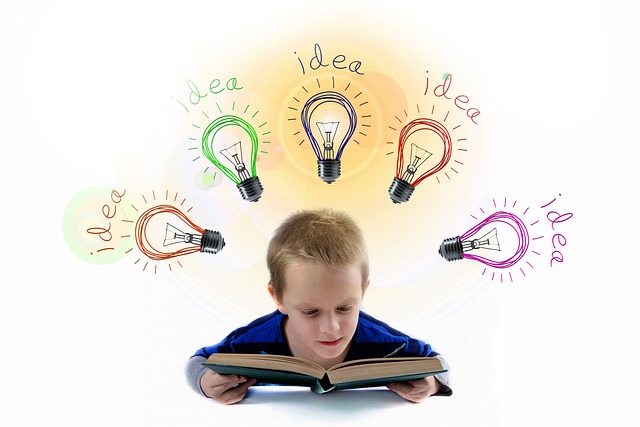Concentration skills are a vital aspect of cognitive function, facilitating the ability to focus on tasks and complete them efficiently.
The role of concentration in daily life is significant, as it contributes to success in academic or professional work, sport, and other activities requiring attention and perseverance.
The importance of developing concentration skills cannot be overstated, given the current state of society where constant distractions from technology have become ubiquitous.
With today’s fast-paced lifestyle, individuals who can maintain their focus for extended periods are highly sought after by employers, making the development of this skill crucial for career advancement.
Additionally, sustained concentration enables one to delve deeply into complex problems and create innovative solutions that set them apart from others. Therefore, understanding why concentration skills are essential could help improve people’s quality of life both personally and professionally.
Enhancing Productivity
 The ability to focus and concentrate is crucial for enhancing productivity. It allows individuals to complete tasks efficiently, with fewer errors and distractions. In today’s fast-paced world, where multitasking has become the norm, concentration skills are even more vital.
The ability to focus and concentrate is crucial for enhancing productivity. It allows individuals to complete tasks efficiently, with fewer errors and distractions. In today’s fast-paced world, where multitasking has become the norm, concentration skills are even more vital.
Mindful breathing is one technique that can help improve concentration. By focusing on each breath, individuals can clear their minds of distractions and be fully present in the moment. This practice helps reduce stress levels and increases mental clarity, leading to improved focus and productivity.
Another effective strategy is time blocking. This involves setting aside specific periods of time dedicated solely to a particular task or activity. During this period, all other distractions should be minimized or eliminated entirely.
Time-blocking enhances concentration by allowing individuals to channel their energy towards completing one task at a time without interruption. In summary, concentration skills play an essential role in improving productivity. Mindful breathing techniques and time blocking can aid in developing these skills effectively.
Focusing on one task at a time minimizes interruptions while increasing efficiency and reducing errors ultimately resulting in higher quality outputs.
Improving Memory Retention
Memory retention is the ability to store and retrieve information from our brain. It is essential for daily activities, such as learning new skills or recalling past experiences. However, memory retention can fade over time due to various factors, including age-related changes in the brain, stress, lack of sleep, and poor concentration skills. Therefore, it is vital to adopt effective memory techniques that help improve memory retention.
One of the most effective ways to enhance memory retention is through using memory techniques. These strategies involve associating information with something significant or familiar to you. For example, creating acronyms, visualizing images or scenarios related to the material being learned will enable easy retrieval when required later on. Using these techniques helps create long-lasting memories by making them more meaningful and easier to recall.
Meditation techniques are also an excellent way of improving memory retention. Meditation involves focusing your attention on one particular thing and clearing your mind of all other distractions. This practice has been shown to increase grey matter density in the hippocampus region of the brain responsible for storing memories. By doing this regularly, meditation helps strengthen neural connections necessary for better memory function.
Another way of enhancing memory retention is by breaking down large chunks of information into smaller bits that are easier to memorize. This technique called chunking allows us to retain more information effectively without straining our brains too much at once. Additionally, repetition has always been a proven method for strengthening our ability to remember things quickly.
The joy of knowing that crucial details don’t slip out is one of the benefits of improving memory retention. Feeling confident while taking tests because nothing was forgotten is another. Avoiding embarrassing moments where people know what happened but not your name is yet another. Being able to share stories with family members who have lost their own memories is a heartwarming experience.
Improving memory retention requires adopting efficient practices like employing mnemonic devices that associate data with memorable events; practicing mindfulness via meditation sessions so as not only reduce anxiety but also stimulate neural connections responsible for memory; breaking down larger chunks of information into smaller, more manageable bits that allow us to learn efficiently without overwhelming our brains. Finally, repetition is key to strengthening the brain’s ability to recall critical details long-term. By applying these techniques, you can enhance your memory retention and achieve better outcomes in both personal and professional settings.
Developing Self-Discipline
In order to master the skill of concentration, one must also develop self-discipline. This attribute is critical in achieving goals and objectives that require focus and persistence.
Self-discipline can be defined as the ability to control one’s impulses, emotions, and desires to stay on track towards a specific goal. While it may seem daunting at first, developing self-discipline is achievable with daily practice.
The process of developing self-discipline requires accountability systems. These are mechanisms put in place to ensure that individuals remain committed to their goals even when faced with distractions or temptations. Accountability systems come in different forms such as tracking progress through journals, setting reminders, or partnering up with like-minded individuals who hold you accountable for your actions.
Daily practice is key in building self-discipline. Consistency over time leads to habit formation which eventually becomes automatic behavior. The more an individual practices self-discipline, the easier it becomes to resist temptation and maintain focus on long-term goals.
By implementing a routine that includes daily exercises such as meditation or mindfulness training, one can gradually build their discipline muscle.
Developing self-discipline takes time and effort but ultimately pays off by improving productivity levels while reducing stress caused by procrastination or lack of direction. By establishing accountability systems and practicing daily routines designed to improve focus and emotional regulation skills, anyone can cultivate this valuable trait within themselves without having to rely solely on willpower alone.
Reducing Stress And Anxiety
In today’s fast-paced world, stress and anxiety are common problems that people face on a daily basis. These issues can lead to physical discomfort, emotional distress, and mental exhaustion. Fortunately, there are ways to reduce these negative effects through the use of mindfulness techniques.
Mindfulness is the practice of being present in the moment without judgment or distraction. It involves paying attention to your thoughts, feelings, and surroundings with curiosity and openness. When you cultivate this awareness regularly through meditation or other practices, it can help alleviate stress and anxiety by calming your mind and body.
Meditation benefits have been widely studied for their positive impact on reducing stress levels. Regular practice has shown to lower cortisol levels – the hormone associated with stress response – which results in reduced feelings of anxiety over time. Additionally, meditation helps improve focus by training your brain to stay present rather than getting distracted by worries about past or future events.
If you’re new to mindfulness techniques or simply looking for some guidance on how to incorporate them into your routine effectively, here are three tips to get started:
– Start small: Begin with just five minutes of meditation each day and gradually increase as you feel comfortable.
– Find a quiet space: Choose a place where you won’t be disturbed during your meditation practice.
– Use guided meditations: There are many apps available that provide guided meditations for beginners or those who prefer more structure.
In conclusion, incorporating mindfulness techniques such as meditation into your daily routine can be an effective way to reduce stress and anxiety levels. By practicing regularly, you’ll train yourself to stay present in the moment, resulting in improved focus and overall well-being. Try starting with just a few minutes per day using one of the above tips and see what kind of positive changes it brings into your life!
Enhancing Creativity
Metaphorically speaking, creativity is like a garden that needs constant tending to bloom. Mindful thinking and concentration skills are essential tools for cultivating this garden of imagination.
When we focus our attention on the task at hand, it allows us to tap into our natural ability for generating ideas.
To enhance creativity, there are various idea generation techniques available. One such technique is brainstorming – a group activity where individuals generate ideas in a non-judgmental atmosphere. Another approach is mind mapping, which involves creating visual diagrams to represent concepts and ideas. These methods help break down mental barriers and stimulate innovative thinking.
Additionally, practicing mindfulness can also improve creative output by reducing stress levels and increasing self-awareness. It enables us to stay present in the moment and observe our thoughts without judgment, thereby facilitating new perspectives and insights.
In summary, enhancing creativity requires both the development of mindful thinking abilities as well as implementing effective idea generation techniques. By incorporating these practices into your daily routine, you can unlock your full potential for innovation and problem-solving without limitations or boundaries.
Improving Performance In Sports And Other Physical Activities
Mental preparation is crucial for athletes to be able to perform their best in sports and other physical activities. Concentration skills play a significant role in mental preparation, as they enable individuals to maintain focus on the task at hand while ignoring any distractions.
One effective way of improving concentration skills is through meditation or mindfulness practices. These techniques involve training the mind to stay focused on one thing, such as breathing or a specific thought, which can then translate into improved performance during physical activities.
Additionally, visualization exercises can help athletes mentally prepare for competitions by imagining themselves successfully completing actions related to their sport.
Other focus techniques that can improve performance include setting goals and breaking them down into smaller achievable steps. By doing so, athletes are more likely to feel motivated and confident throughout their training and competition process.
Furthermore, staying present and avoiding negative self-talk can also enhance concentration abilities and overall performance.
In conclusion, developing strong concentration skills is essential for performing well in sports and other physical activities. Mental preparation strategies such as meditation, visualization exercises, goal-setting techniques, and positive self-talk all contribute towards enhancing an athlete’s ability to remain focused during intense situations. Incorporating these methods into daily practice routines can lead to long-term improvements not only in sports but also in everyday life challenges that require sustained attention.
Boosting Career Success
Improving focus is a crucial factor in achieving career advancement. Concentration skills are important as they enable individuals to stay focused on their tasks, which results in increased productivity and efficiency. With better concentration skills, employees can complete their work accurately and quickly, thus delivering high-quality outputs that can impress superiors and colleagues alike.
Poor concentration skills may hinder an individual’s progress at work. Distractions such as social media or personal conversations might divert one’s attention from the task at hand, leading to delays and mistakes. Consequently, this could affect job performance, resulting in missed deadlines and substandard quality of output.
Employers seek highly productive workers who can deliver excellent results within set timelines; therefore, mastering concentration skills is essential for success at work.
In addition to improving productivity and efficiency, developing strong concentration abilities has other benefits for career growth. For starters, it helps gain respect from peers by showcasing dedication towards work. Furthermore, with an ability to concentrate effectively comes a stronger sense of discipline and self-control – traits that employers value highly among employees representing their company brand.
In conclusion, there is no denying that improving focus plays a vital role in boosting career success. It not only leads to improved productivity but also enhances overall job performance while promoting valuable qualities like discipline and self-control. Therefore, honing concentration skills should be considered a critical aspect of professional development for anyone seeking long-term career advancement opportunities.
Frequently Asked Questions
Can Concentration Skills Be Developed At Any Age Or Are They Only Effective When Developed In Childhood?
Concentration skills are crucial for individuals to enhance their productivity and efficiency in performing various tasks.
While it is commonly believed that concentration skills can only be developed during childhood, recent research suggests otherwise. Adult learning has shown to have a significant impact on improving cognitive abilities including the development of enhanced attention spans and greater focus.
Cognitive exercises such as meditation or mindfulness practices aid in promoting sustained attention, an essential component of concentration skill-building. For instance, a hypothetical case study could involve an adult who chose to incorporate daily 10-minute meditative sessions into their routine which resulted in improved focus and overall performance at work.
Therefore, it can be concluded that effective concentration skills can indeed be developed later in life through consistent practice and training.
Can Meditation And Mindfulness Techniques Improve Concentration Skills?
Research has shown that meditation and mindfulness techniques can help improve concentration skills.
Meditation benefits have been found to enhance attention, memory, and cognitive flexibility while reducing mind-wandering and distractibility.
Mindfulness exercises also lead to improved sustained focus, as well as better control over emotional responses when faced with distractions or stressors.
These practices can be effective in individuals of all ages, from childhood through adulthood.
Incorporating regular sessions of meditation and mindfulness into one’s routine may therefore offer a range of cognitive and emotional benefits related to concentration skills.
How Does Poor Nutrition Affect Concentration Skills?
Nutrition plays a crucial role in maintaining optimal cognitive function, including focus and concentration skills.
Research has identified several brain-boosting foods that are rich in essential nutrients such as omega-3 fatty acids, vitamins B6 and B12, iron, zinc, and magnesium that can support healthy brain function.
A poor diet lacking in these vital nutrients may lead to impaired cognitive abilities including reduced attention span, memory loss, difficulty concentrating or learning new information.
Therefore, it is important to incorporate a balanced diet consisting of nutrient-dense foods for promoting good mental health and overall well-being.
Are There Any Negative Effects Of Excessively Focusing On One Task For Long Periods Of Time?
Excessively focusing on one task for long periods of time can have negative health implications and productivity consequences.
It’s like a marathon runner who pushes themselves too hard without taking breaks or hydrating properly, leading to exhaustion and potential injury.
Similarly, over-focusing can lead to eye strain, headaches, neck and back pain, and decreased cognitive function.
Additionally, productivity may suffer as the brain becomes fatigued and less able to process information efficiently.
Therefore, it is important to balance concentration skills with proper rest breaks in order to maintain both physical and mental well-being while also maximizing productivity.
Can Technology And Social Media Use Affect Concentration Skills?
Technology addiction and multitasking habits have been shown to negatively affect concentration skills. The constant stimulation provided by technology and social media can make it difficult for individuals to focus on a single task for an extended period of time.
This can lead to reduced productivity, increased stress levels, and decreased overall performance in both academic and professional settings. Studies have also found that excessive use of technology can cause changes in the brain’s structure and chemistry, further compromising one’s ability to concentrate effectively.
Therefore, it is important for individuals to be mindful of their technological consumption habits and limit their exposure when necessary to maintain optimal concentration abilities.
Conclusion
Concentration skills are essential for success in academic, professional and personal pursuits. While it is generally believed that these skills must be developed during childhood, research suggests that they can be enhanced at any age through meditation and mindfulness techniques.
Poor nutrition, on the other hand, can impair concentration abilities. Excessive focus on one task for extended periods of time may have negative effects such as burnout or reduced creativity. Additionally, technology and social media use has been linked to decreased attention spans and multitasking ability.
It is crucial to recognize the importance of developing strong concentration skills while also being mindful of potential distractions. In conclusion, honing concentration skills is a critical aspect of achieving success in all areas of life.
With practice and consistent effort, individuals can improve their ability to stay focused and attentive in various situations. The benefits of having good concentration skills include improved productivity, better memory retention, and increased overall performance levels.
As we navigate an increasingly complex world filled with distractions vying for our attention, it becomes even more important to prioritize the development of this fundamental skill set. Can you afford not to?









